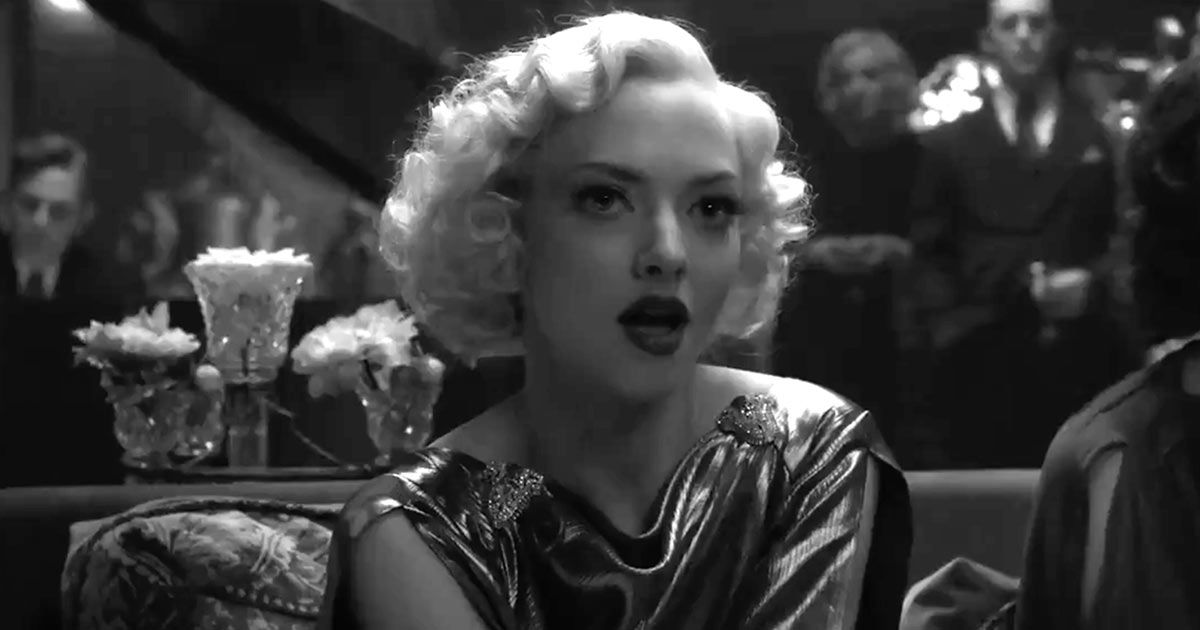Is Mank Genius or Does It Just Think It Is?
Mank, directed by thinker-thriller wunderkind David Fincher, premiered on Netflix this past Friday. Just by the byline, it is everything a cinema nerd could ever want: a witty yet grounded observation of the prolific screenwriter of Citizen Kane as he galivants through 1930s Hollywood glamour and smoke-filled rooms, directed by the creator of such classics as Fight Club and The Social Network, starring a man who has appeared in nearly every genre of film, with no shortage of name drops including but not limited to Louis B. Mayer, Charles MacArthur, and William Randolph Hearst.
And being a movie set in Hollywood’s golden age focused around the creation of one of the most iconic movies ever made, it would be lost if it didn’t draw at least some inspiration from it. Mank recreates many filmmaking elements popularized by Citizen Kane or ones that were standard at the time. It is black and white, with soft lighting pouring from every possible source, giving everything on screen a slight glow. It liberally uses deep focus, the technique popularized by Citizen Kane cinematographer Gregg Toland, and in every opportunity it gets it lines the frames in layers just to show off this focus. The film does not follow a linear timeline, jumping back and forth to explain its main character. Towards the beginning two characters ride in a car and it is charmingly fake with green screen and fake wind fans galore. The film even goes so far as to sometimes recreate exact shots from Citizen Kane, but imbue them with new meaning in the context of Mank. However, where everything in Citizen Kane may begin from any point but undoubtedly centers back to Charles Foster Kane, Mank’s points start at Herman Mankiewicz, but emerge in every possible direction.
On a surface level, Mank would have you believe it's a movie about a genius. And to an extent, it is. But deeper than that, it is a movie about genius. It is about the triumphs and pitfalls of expectation of idea, of whether genius really exists, and how you’re treated when others think you’re special.
Mank isn’t the only treated genius in the film. There are hordes of white collared shirted, overconfident men sitting in smoke filled rooms, wittily throwing out award winning dialogue, ever desperate to prove that he is the smartest in the room. The filmic device that tells us we are back in the present is a spiral notebook in which Mank jots his ideas, another symbol of genius. This, coupled with the repeated references to Shakespeare and operas, seeks to justify the nonlinear structures of both Mank and Citizen Kane.
But not everyone is a genius. There’s the executive: the short man who doesn’t have a heart but has become pretty accustomed to faking it, who has one goal, a million unheard enemies, a favor which is notably difficult to win over, and an inclination towards Sorkinesque soliloquies. And finally, there’s the woman: the entertained, grateful, glamorous star who is slightly exasperated but nonetheless full of curious questions or fun exposition, all of which allows the genius to speak a bit more. Don’t assume however that she is passive, no siree. She’s got goals and spunk, we just only get to see it through a glazed window. And based on how Mank treats each of these categories, it seems at the end that you’d most like to be the woman.
This is a film about a screenwriter and an absent director, made by a director with an absent screenwriter. The film was written by David Fincher’s father, Jack Fincher, who died in 2003. Throughout the film, Orson Welles hardly ever appears in person, only over the phone or through references using his various monikers, “golden boy,” “wunderkind,” or “young Mr. Welles.” In addition to a film about genius, movies, and the Great Depression, Mank is also a film about belonging. To a studio, to a loyalty, to the work that you’ve put in and the credits that will outlive you.


Comments
Post a Comment